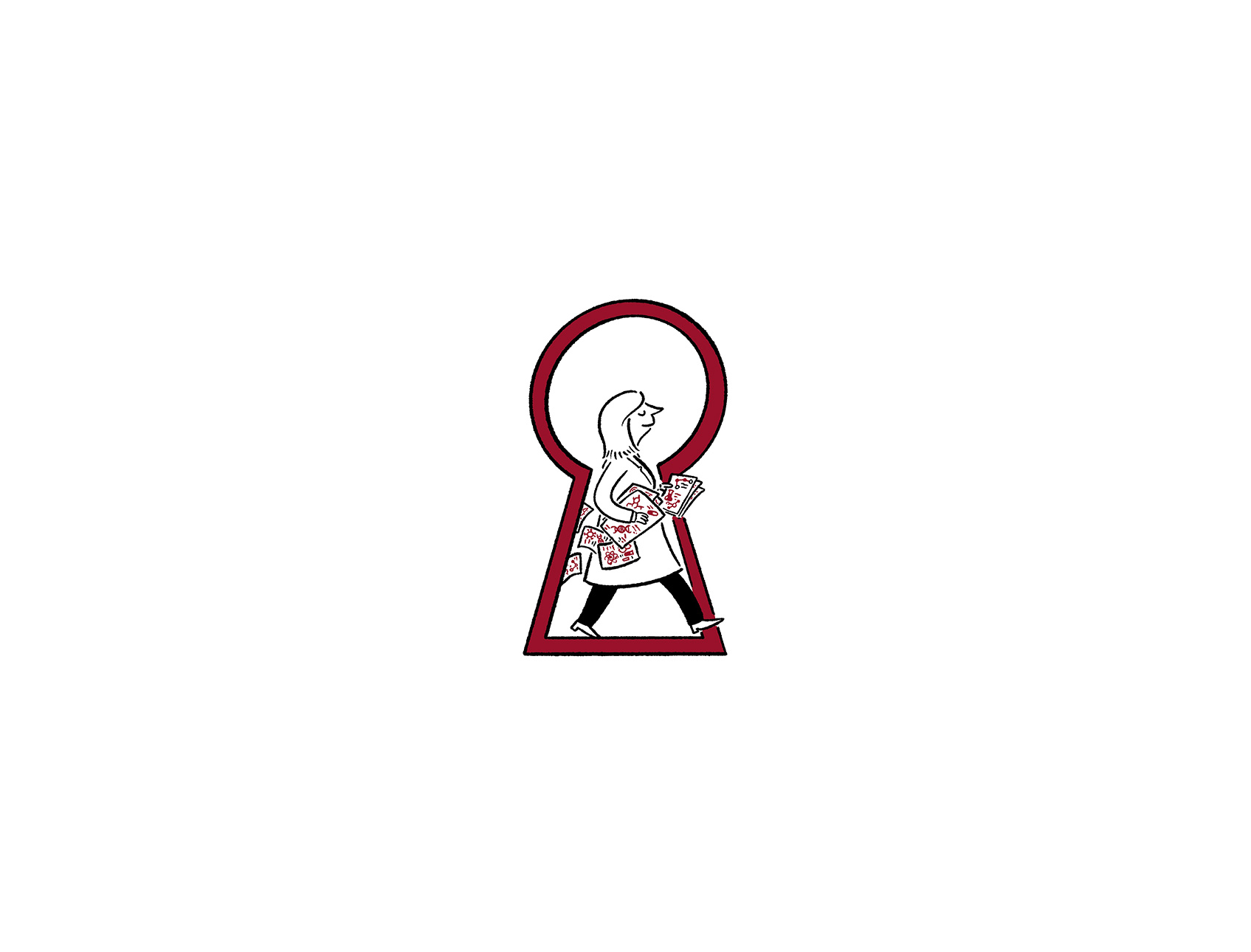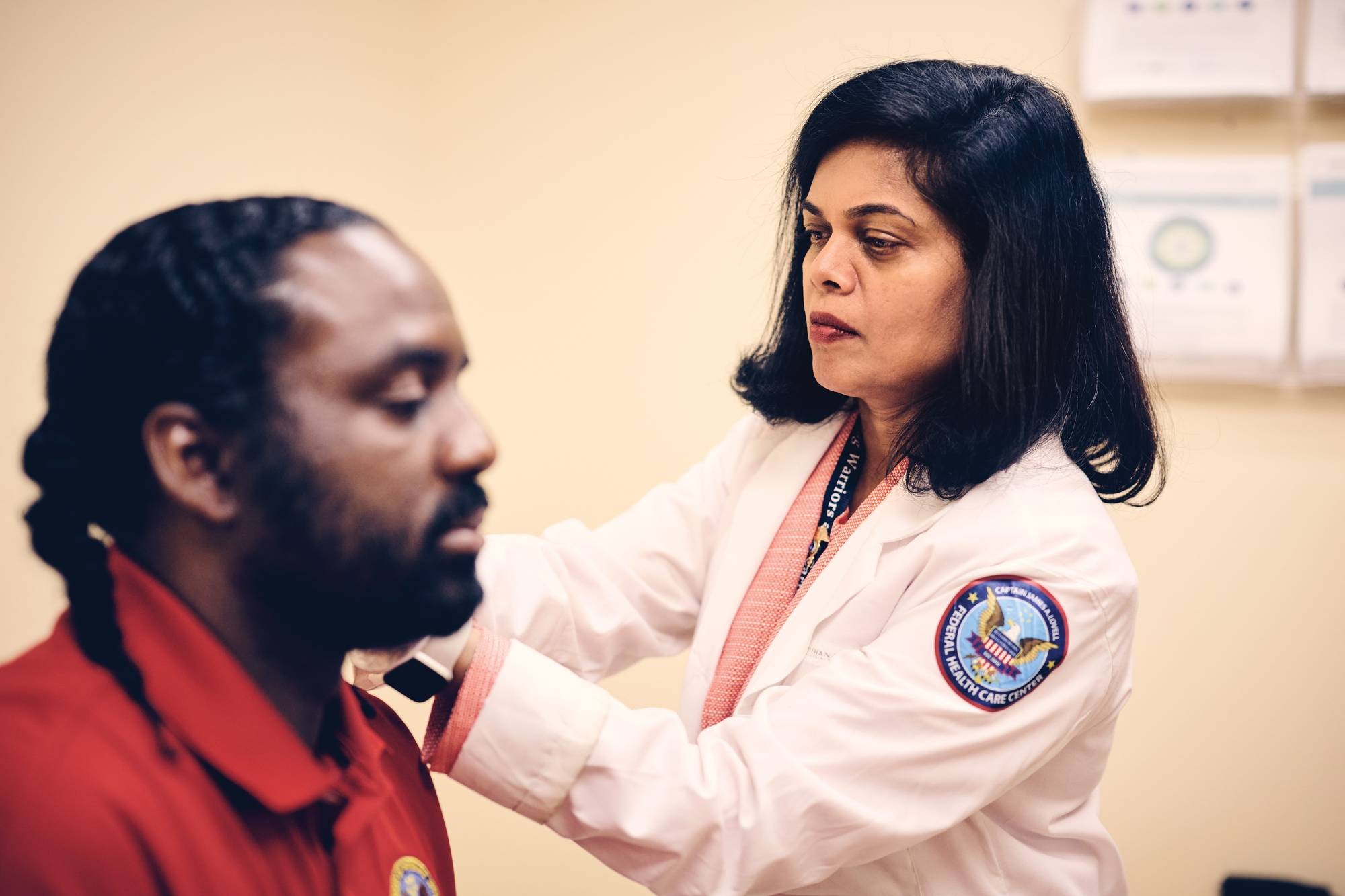Rachel Albright, DPM ’15, MPH, is a foot and ankle surgeon at Stamford Health in Stamford, Connecticut, and the chair of the research committees for both the American College of Foot and Ankle Surgeons (ACFAS) and the American Podiatric Medical Association (APMA).
Author Page
A Secret Love
On research and big data
Illustration by James YatesResearch & Innovation
“I was good at research, so why shouldn’t I say yes?”
When I was in my first year as a podiatry student at the Dr. William M. Scholl College of Podiatric Medicine, I was reminded daily, in my science-heavy course load, that my college undergrad major had been business management. Throughout my undergrad time, I knew I wanted to study medicine — business was my backup plan — so I had the prerequisites for biochemistry and neuroscience, but unlike many of my classmates, I had no track record in either, so at times, I struggled to maintain my confidence.
A few years earlier, in my clinical training at Moffitt Cancer Center in Tampa, Florida, I had made a surprising discovery about myself: I learned that I enjoyed research. I loved every detail about oncology research, even the most tedious minutiae, and I worked in the same research lab for years. Still, I knew I wanted to treat patients hands-on, so I never thought research would occupy much of my time in my future career. My time in research would be a blip on the screen, a happy memory.
Flash forward to the Understanding and Implementing Research course at Scholl. On day one, Professor Adam Fleischer, DPM, went around our small-group room and asked each student, one by one: “What is your research background?” and “Would you like to do research?” There was a spark in me at the very question, but everyone else in the room seemed to shrink. I could practically read their minds: “I can’t take on extra work”; “Research is boring.” So, when Dr. Fleischer got to me, I said quietly, “No, I’m not interested.” But the moment I got home that afternoon, I regretted not having confessed my love for research, and I knew I needed the positive feedback loop, despite how much extra work it would be.
I was good at research, so why shouldn’t I say yes? I emailed the professor and let him know I’d changed my mind. Since that moment, I’ve never stopped doing research. After med school, I got my master’s degree in public health, and big data is now central to my podiatry practice. But even more, I use it to help our specialty understand outcomes, patient satisfaction and the uses of technology to improve lives. And I love every minute of the research — gathering, analyzing and reporting data to support my work and the work of my colleagues across the country — and most importantly, to improve the care of patients with foot and ankle problems.
Published November 20, 2025

